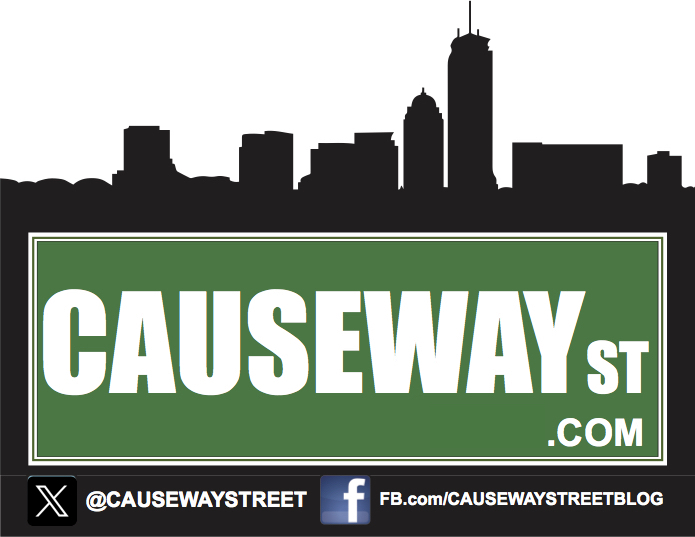Upon entering the NBA in 2011, Celtics forward Marcus Morris struggled to find his footing.
His career got off to a rocky start, which ultimately led him down a road to depression. Part two of Jackie MacMullan's five-part series on mental illness in the NBA highlighted Morris' battle as he opened up about his upbringing, pressures that come with being a professional athlete and the steps he took to seek help last season after joining the Celtics in 2017.
Growing up in North Philadelphia wasn't easy. Marcus and his twin brother Markieff had to look after one another in a city where avoiding altercations was a day-to-day challenge.
"We were just trying to survive every day," Marcus says. "As a kid, it's fun for a minute. You don't see yourself in any danger. Once you become a teenager, you're unprotected. Now you're a target. If you're wearing some Jordans, they're coming for you. There were plenty of times I had to protect myself. You walk out the door every day looking around, watching your back, just trying to stay out of the line of fire.
"You see shootings, pistol whippings. One wrong decision, one wrong word, and it escalates so quickly into a full-blown war. It's like that in Philly. You're trapped in a box. Your opportunity is so small, so once a person gets ahold of something, they protect it with their life. It's hard to explain if you haven't lived it." [ESPN]The two relied on their athletic abilities -- they played basketball and football in high school -- to keep them out of trouble. The hard work they put in on the basketball court eventually earned them a free ride to the University of Kansas, then later came the NBA.
Markieff was drafted by the Suns with the 13th pick, and Marcus was selected with the 14th pick by the Rockets. Markieff instantly found a role with the Suns as a rookie, he averaged 20 minutes a game, meanwhile, Marcus only played 17 games that season and was eventually sent to Houston's D-League affiliate.
"I was heartbroken," Marcus says. "I'm thinking, 'Am I not good enough? Did I do something wrong?' Then I got hurt. The way I dealt with stuff was to bottle it up, hold it in. It's my first year in the NBA, and it's all falling apart. I didn't have any veterans telling me, 'It's OK, it will get better.' I felt really alone."Morris didn't feel that way for long, midway through his sophomore campaign he was dealt to the Suns in February 2013, reuniting him with his brother. The feelings of anxiety, loneliness and depression evaporated for two and a half seasons until the summer of 2015 when Morris was traded to the Pistons.
"That's when I really went to a dark place," he says. "It was so cold what they did. After that, I made up my mind. I wasn't having no more relationships with any front-office people. I wasn't getting close to any more guys on the team. I was done. The team was over there, and I was going to be over here."Feeling betrayed and unable to trust anyone wasn't new for Morris, he had dealt with it throughout his childhood in a home with no father in a neighborhood where he wouldn't trust his own friends, he said. But this time it was different.
Growing up, basketball was his safe haven -- his way of coping with his surroundings. As an NBA player, Morris looked at the sport as more of a business and the main source of his anxiety, dark thoughts, and struggle to find peace.
He considered quitting altogether but couldn't think of an alternative lifestyle outside of playing basketball, so he stuck it out in Detroit. When he was traded again in the summer of 2017 to Boston, it was the first time Morris reached out to someone about his mental state.
Psychologist Dr. Stephanie Pinder-Amaker is someone the Celtics organization advise its players to speak to for help with their mental struggles. After sitting in on a mandatory informational session, Morris reached out to Pinder-Amaker the second time she visited the team.
What Pinder-Amaker helped Morris with the most was recognizing his triggers for anxiety, and things Morris can do every day to help deter high levels of stress.
"She helped me so much," Morris says. "It may sound silly, but just closing my eyes in a dark room and breathing for 10 minutes a day helps me. I know lots of guys who are dealing with some kind of anxiety and depression -- not knowing if they have a job next season, not knowing if they're going to get traded. It's so stressful. Everyone is pulling at you. They want your time, your money, a piece of your fame.
"If you have depression, you should be trying to get rid of it instead of bottling it up and letting it weigh on you and weigh on you and weigh on you. Talking to Stephanie released so much of that stress for me."Morris says he no longer struggles with mental illness and recommends all NBA players to never be afraid to speak to someone if they're feeling the same way he did during his darkest hours.
"We need to forget about the criticism we might hear," Morris says. "We need to search and find out what makes us better. This isn't even about basketball. It's about my life."His brother Markieff, who admitted to dealing with the same battle, declined MacMullan for an interview.
Click here, to read part two of MacMullan's piece.


No comments:
Post a Comment